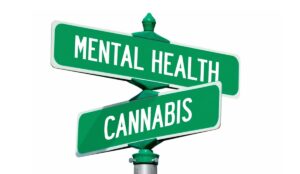Introduction
The legalization of prescription cannabis has been a significant milestone in the UK, promising safe and regulated access for medicinal users. However, a crucial challenge has emerged: the pricing of prescription cannabis. Attempts to position prescription cannabis as a premium product have inadvertently frustrated many illicit self-medicating patients, potentially deterring them from engaging with the legal market.
The Impact of High Prices on Self-Medicating Patients
One of the main frustrations among illicit self-medicating patients is the high cost of prescription cannabis. Many individuals rely on cannabis for its therapeutic benefits, using it to manage chronic pain, anxiety, and other medical conditions. For these patients, the higher price tag associated with prescription cannabis is not just an inconvenience; it can be a significant barrier to accessing the medicine they need.
Price Comparison: Legal vs. Illicit Cannabis
Legal cannabis often comes with higher prices due to various factors, including taxes, regulatory compliance costs, and the expenses involved in ensuring product quality and safety. In contrast, illicit cannabis, while unregulated and potentially unsafe, is often cheaper. This price disparity leaves many self-medicating patients with a tough decision: pay more for legal cannabis or continue to purchase from the black market.
Dilemma of Pricing
To encourage self-medicating patients to transition to the legal market, it is crucial to address the issue of pricing. Industry needs to work to find solutions that make prescription cannabis more affordable. This could involve subsidising costs for low-income patients, or implementing other measures to lower prices without compromising product safety and quality.
Potential Solutions
– **Tax Reductions:** Lowering taxes on medical cannabis can make it more affordable for patients who rely on it for their health.
– **Subsidies:** Providing financial assistance or subsidies to low-income patients can help them access legal cannabis.
– **Streamlining Regulations:** Simplifying regulatory requirements can reduce costs for producers, which may be passed on to consumers in the form of lower prices.
-**Fit for Purpose Trials leading to NHS Access:** The cannabis industry must conduct rigorous, fit-for-purpose trials to ensure the safety and efficacy of cannabis-based products for NHS use. Such trials are essential for generating reliable data, gaining regulatory approval, and establishing trust among healthcare providers and patients, ultimately facilitating broader NHS access to these therapeutic options and relieving the financial burden on patients.
Conclusion
Positioning prescription cannabis as a more expensive but “legal” option has significant drawbacks, particularly for self-medicating patients who may be driven to continue purchasing from the illicit market. To ensure that these patients can safely and affordably access the cannabis they need, it is essential to address the pricing challenges in the legal market. By making prescription cannabis more accessible and affordable and carrying out fit for purpose trials for NHS access , industry can therefore help more individuals benefit from its therapeutic properties.







